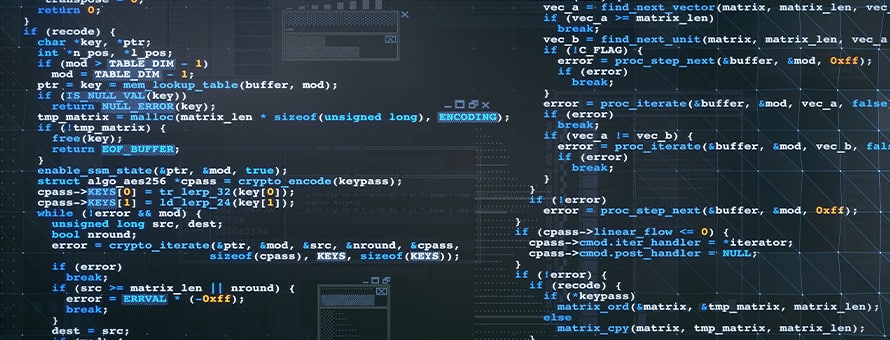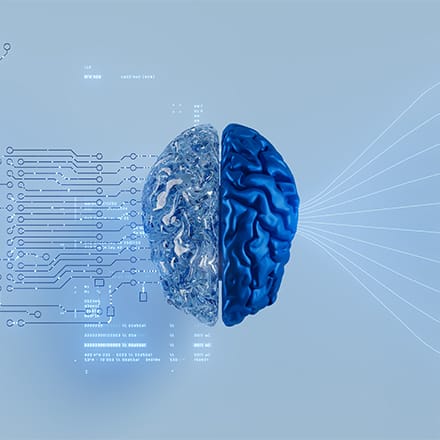5 Computer Science Languages to Learn

Most languages let you communicate with other people. Coding languages let you communicate with technology.

When you're writing code, you're laying out instructions on what you'd like to see on the app you're building or the website you're designing. But there are a number of coding languages to choose from and each one has a different use.
"If you try to learn everything, you're never going to," said Dr. Gary Savard, a senior associate dean of computer science at Southern New Hampshire University (SNHU) with over 30 years of experience as a software engineer and architect.
There are simply too many coding languages to learn all of them, according to Savard. That's why he said you need to prioritize if you want to establish a strong foundation of computer science skills.
What Are the Most Useful Programming Languages to Know?

If you're interested in becoming a capable programmer, you'll need to learn multiple programming languages, according to Dr. Swapnil Chhabra, a professor of computer science at SNHU who has been programming since high school.
"I taught myself several languages," he said, "FORTRAN 77, C, C++, Perl, Java, Hive, R and Python — and developed a deep passion for using algorithmic approaches to solve real-world problems."
Since then, he's been in a variety of computer science positions, including working as a computational research scientist at MIT and global practice leader at IBM Watson for Drug Discovery.
For a strong computer science foundation, Chhabra and Savard recommended focusing on these 5 languages:
 Python
Python
Python is a general-purpose language that's hugely popular thanks to its versatility.
"If I just need to crunch tons of data, I'm going to use Python because really that's what it's designed for," said Savard. "It's got all kinds of these built-in libraries that allow you to crunch data and do math without having to write a lot of code."
Learn more about Python and what you can do with it.
 C++
C++
![]() "It’s an excellent language for building a strong foundation in core programming concepts like control structures, memory management and algorithmic thinking," Chhabra said.
"It’s an excellent language for building a strong foundation in core programming concepts like control structures, memory management and algorithmic thinking," Chhabra said.
If you need a lot of speed, Savard said this is a good language for that. "I'm primarily a C++ programmer, which is very useful if you're going to be writing embedded software," he said.
He noted that C++ can help you work on devices, mobile phones, robotics, automation and more.
 Java
Java
Java is another useful programming language that's commonly used to create desktop and mobile applications, websites, e-commerce platforms and more, according to Science Direct. While C++ runs faster, Java is more secure, Science Direct said.
Python, C++ and Java are the first three languages Chhabra recommended focusing on. "These languages cover a wide range of applications from machine learning and web development to systems programming," he said.
 JavaScript
JavaScript
Although they have similar names, JavaScript and Java are two distinct coding languages. According to the Java website, JavaScript is exclusively used in browsers to create websites and can't be used to build applications. However, it can still be a hugely beneficial language to learn, especially if you'd like to get into web development.
"JavaScript is essential for front-end development," Chhabra said.
 SQL
SQL
To round out your foundation in computer science languages, you could also learn SQL, which stands for structured query language. SQL lets you communicate with and manipulate databases, said Business News Daily. If you're interested in working as a database administrator, you may need to learn SQL.
"SQL remains critical for working with databases and data-driven applications," said Chhabra.
What is the Hardest Coding Language to Learn?
![]() Everyone has different strengths, so certain languages may be easier or harder for you to learn. But Chhabra said Haskell can be particularly difficult.
Everyone has different strengths, so certain languages may be easier or harder for you to learn. But Chhabra said Haskell can be particularly difficult.
"It’s one of the most challenging languages I’ve encountered," he said. "Unlike imperative languages like C or Java — or object-oriented languages like Python or JavaScript — Haskell is a purely functional language."
Haskell makes you think in a completely different way, according to Chhabra, and because it's a less popular programming language, there isn't a very large community around it.
What Coding Language is Best for Beginners?
A few languages might be easier to start with than others, according to Chhabra. First, he recommended starting with C++.
"That said, Python is also a fantastic starting point," Chhabra said. "Its clean syntax and immediate feedback make it especially accessible for beginners, particularly those interested in data science or AI."
If you'd like to study coding languages and pursue a career in tech, a computer science degree could help you get there. SNHU offers associate, bachelor's and master's in computer science programs that can help you move into the computer science field.
And if you have a bachelor's degree in another subject, you could still get a master's in computer science without a CS undergrad through SNHU's program, which offers foundational courses to help get you up to speed. The master's level foundational course "Introduction to Programming" begins by teaching students C++.
Discover more about SNHU’s online computer science degrees: Find out what courses you'll take, skills you’ll learn and how to request information about the program.
Mars Girolimon '21 '23G is a staff writer at Southern New Hampshire University where they earned their bachelor's and master's, both in English and creative writing. In addition to their work in higher education, Girolimon's short fiction is published in the North American Review, So It Goes by The Kurt Vonnegut Museum & Library, X-R-A-Y and more. Connect with them on LinkedIn.
Explore more content like this article

How to Get Into AI: What AI at Work Looks Like for Beginners

Understanding AI Ethics: Issues, Principles and Practices

What is the Best Degree for an Artificial Intelligence Career?
About Southern New Hampshire University

SNHU is a nonprofit, accredited university with a mission to make high-quality education more accessible and affordable for everyone.
Founded in 1932, and online since 1995, we’ve helped countless students reach their goals with flexible, career-focused programs. Our 300-acre campus in Manchester, NH is home to over 3,000 students, and we serve over 135,000 students online. Visit our about SNHU page to learn more about our mission, accreditations, leadership team, national recognitions and awards.


